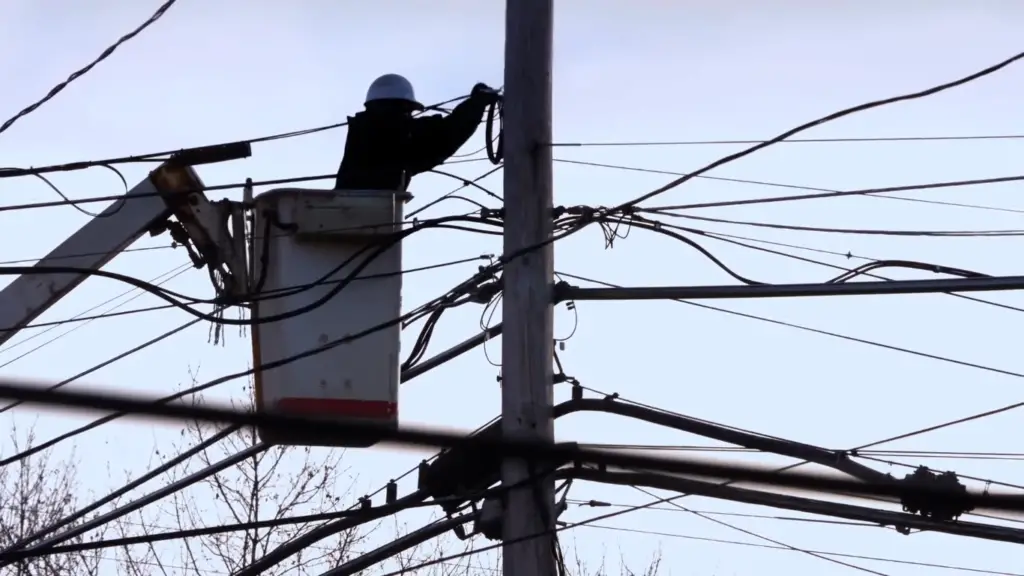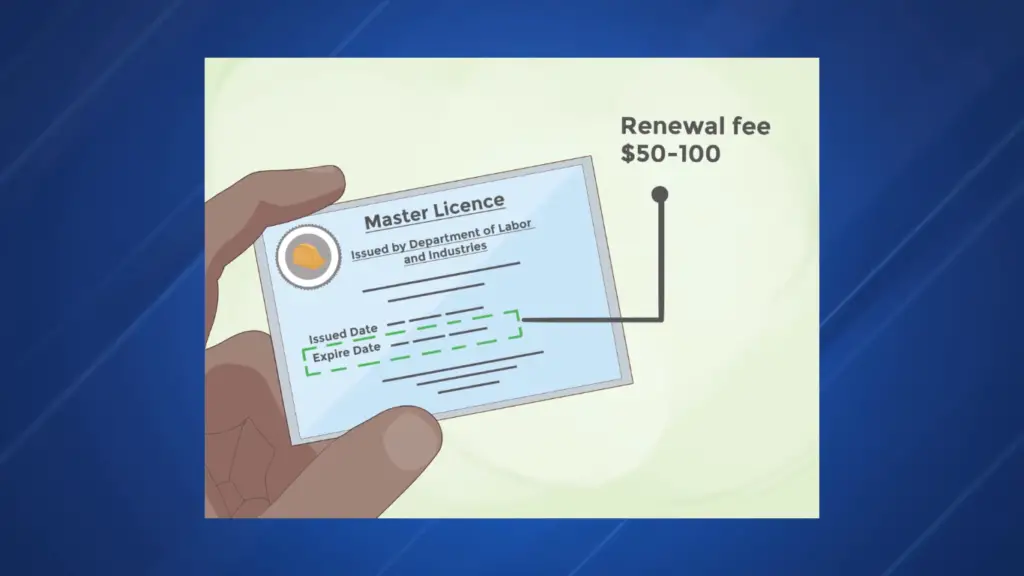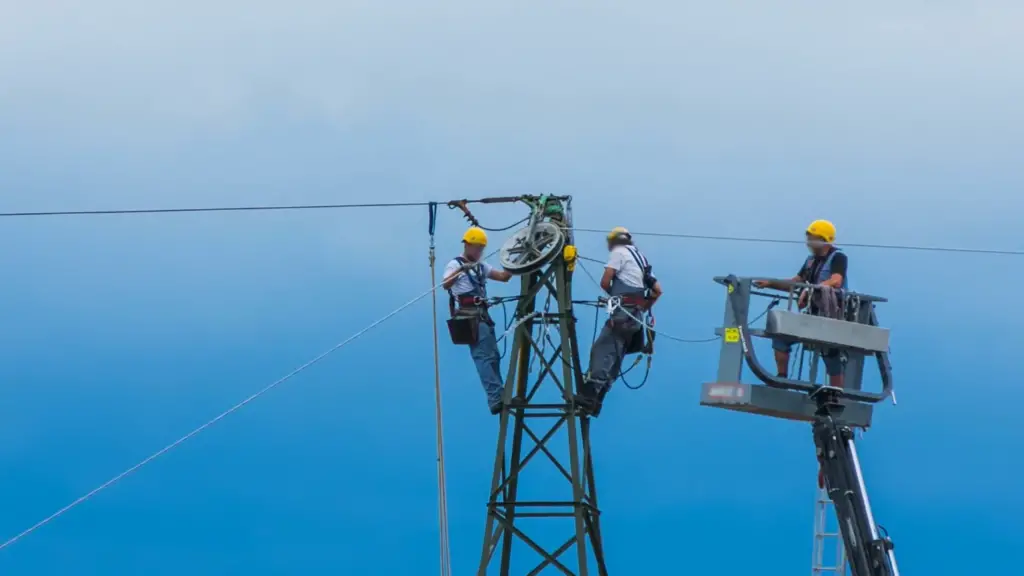Are you curious about the expenses involved in pursuing a career in electrician services? Specifically, what is the cost to become an electrician? Becoming an electrician requires years of experience and training followed by certification from the state. While this journey can be intimidating at first glance, understanding the requirements and costs associated with becoming a certified professional in electrical work will help prepare you for success. In this blog post, we’ll provide insight into the process of becoming an electrician—including estimated timeframes and expected expenses. Whether you’re just starting out or already well on your way to certification, we want you to have all the information necessary when making decisions about your future as a licensed tradesperson.
Costs of Becoming an Electrician
The cost of licensure depends heavily on the state in which you live and the type of licensing process it requires. In some states, all that is required to become an electrician is to pass a written exam, while in others you may need more hands-on experience or other forms of certification as well. Therefore, there’s no one-size-fits-all answer when it comes to becoming an electrician; the amount of money involved will vary depending on the regulations and requirements set forth by each individual state.

In addition to the cost of licensing, becoming an electrician entails other costs as well. You’ll need a range of tools and equipment in order to do your job safely and properly, including ladders, wire cutters, screwdrivers, multimeters, pliers and much more. Buying all these items can be quite costly but they are necessary if you want to work as an electrician. [1]
Other expenses you may incur include insurance fees and ongoing educational requirements for staying up-to-date on industry best practices. Thus, it is crucial to take into account these extra expenses while calculating the total cost of becoming an electrician.
Ultimately, the amount of money involved in becoming an electrician depends on your individual situation, and the regulations that apply to you. It is best to research the licensing requirements of your state carefully before beginning any type of training or certification process, as well as all other costs associated with becoming an electrician. This will help ensure that you’re fully prepared for the financial commitment involved in this career path.
By taking into account all the various costs associated with becoming an electrician – from licensing fees to equipment purchases – you can be sure that you have a firm understanding of exactly how much it will cost to pursue this profession.
Apprenticeships
Apprenticeships are the most popular route for becoming an electrician. Apprenticeship programs vary in cost depending on your state and locality. Generally, apprenticeships are free or require a nominal fee to cover the costs of supplies needed for the program. These fees can range from $50-$300 and may also include a registration fee for taking classes.
In some cases, apprenticeships will also cover tuition and other related expenses, including books and tools. This coverage varies by location, so it’s important to check with your local union or trade school to find out what is covered under their specific program.
For those who don’t want to pursue an apprenticeship route, there are other options available such as attending vocational schools or job training programs. Fees for these programs can range from a few hundred dollars to several thousand depending on the length of the program and the type of certification you are seeking. Additionally, some vocational schools or job training programs may offer financial aid or scholarships to help make their program more affordable.
Further Training and Education
Once an electrician has completed all of the necessary steps to become licensed in their state, they may choose to further their education and training in order to specialize or stay up-to-date on new technology. This can come at additional cost, as specialized courses and certifications typically require an enrollment fee. Additionally, attending seminars or industry events can add more costs for travel and lodging if the event is not held locally. In some cases, employers may offer tuition assistance for employees who are interested in pursuing higher education through a trade school or other institution. These programs may also cover expenses related to books, fees, and materials required for course completion.

The choice to pursue additional training depends largely on the individual’s goals; if an electrician wishes to work in a specialized field such as residential wiring, they may need to become certified or complete additional coursework. Other more general areas of study, such as safety practices and electrical codes, are often required for licensing but can be beneficial even after an electrician is employed in the field.
Testing and Certification Requirements
In addition to the cost of tuition, those interested in becoming an electrician must also consider testing and certification fees. Most states require that all electricians obtain a license before practicing their trade. To obtain a license, applicants typically need to pass a state-specific test. The cost of such tests vary across states; however, it usually ranges from $50-$150 or more.
Additionally, some employers may require electricians to hold specific certifications depending on the type of electrical work they do. For example, specialized certifications exist for those who install and maintain fire alarms or telecommunications systems. These certifications have associated costs which may include exam fees as well as renewal fees assessed every few years. To stay up-to-date on any changes or updates to the trade, electricians may need to attend educational courses. The cost of such courses also vary and may range from a few hundred dollars up to several thousand. [2]
In summary, becoming an electrician is not a free endeavor when taking into account the costs of tuition, testing and certification fees. However, with proper planning and budgeting, it can be a worthwhile investment in one’s career. With hard work and dedication, individuals who pursue an apprenticeship program have the potential to become certified electricians with lucrative job opportunities.
Supplies and Tools
The cost of supplies and tools for electricians varies greatly depending on the type of job you are doing. Basic tools may include hand-held drills, hammers, screwdrivers, wire cutters, drill bits, pliers and other everyday items that might be needed. Specialized installation or repair jobs may require more specialized equipment such as conduit benders, multimeters, voltage testers or electrical meters. Depending on the type of work a professional electrician is performing, they may need to invest in additional supplies and equipment which can range from several hundred dollars up to several thousand dollars depending on their line of work.

How Long Does It Take to Become an Electrician?
Becoming an electrician requires completing a technical education program and obtaining the necessary licensure from your local municipality or state. The time it takes to become an electrician can vary depending on the amount of experience you already have in the field, as well as any other credentials you may possess.
If you are starting from scratch and don’t have any prior work experience, the typical timeline for becoming an electrician is between four to five years. This includes two to three years of a formal apprenticeship program, followed by one year of study and training at an accredited trade school. You must also complete all necessary testing requirements in order to receive your license. If you already possess knowledge or have worked extensively in the electrical industry, the time it takes to become an electrician can be significantly shorter. [3]
It is important to keep in mind that apprenticeships and trade school programs are competitive and may also require you to pass certain tests or exams before being admitted. It’s also important to note that even after completing your training and passing all necessary tests and licensing requirements, becoming a successful electrician requires ongoing learning and dedication. Becoming an electrician is a rewarding career path, but requires hard work and commitment!
How Do You Qualify As An Electrician?
Becoming an electrician requires completing a formal training program and becoming certified or licensed, depending on your state’s requirements. You must also complete an apprenticeship under the supervision of a qualified electrician to be able to work as a professional in this field.
To qualify for an electrical apprenticeship, you will need to have either taken classes related to electricity (e.g., high school physics or math) or have completed an official qualification such as a diploma from a technical school specializing in electricity-related topics. Additionally, your state may require additional prerequisites such as passing certain competency tests before they will consider you for employment.
Lastly, any aspiring electrician must pass their journeyman exam—which tests both practical and theoretical knowledge related to the profession—in order to become a licensed electrician. This exam is typically administered by the state in which you plan to practice. [4]
The costs associated with becoming an electrician vary greatly depending on what level of certification or licensing you wish to pursue; however, it’s important to note that even after completing the required training and apprenticeships, many aspiring electricians must continue their education throughout their career in order to stay up-to-date on changes in technology and safety regulations. Ultimately, the cost of becoming an electrician can range anywhere from a few thousand dollars for basic certifications all the way up into six figures for more advanced licenses.

Are Electricians In Demand?
In addition, an aging population will require additional maintenance and repairs on existing structures. With this growth projected over the next decade, becoming an electrician is a solid career choice.
For those interested in being part of this booming trade industry, understanding what goes into becoming an electrician is essential. While the costs to become an electrician are not insignificant, they can be managed and even minimized with careful planning.
Is It Hard To Learn To Be An Electrician?
Becoming an electrician requires some dedication and hard work. It takes time to learn all the basics of electricity and how to safely install, maintain, and repair electrical systems and components. You’ll also have to pass tests in order to become certified as a journeyman or master electrician.

The good news is that you don’t need a college degree to become an electrician; most states only require a high school diploma or equivalent. There are various trade schools, apprenticeships, on-the-job training programs, and other forms of instruction available for those interested in becoming an electrician. Additionally, many employers prefer workers who have gone through at least one formal educational program in order to develop their skills and gain industry certifications.
You’ll need strong attention to detail and the ability to follow instructions in order to become a successful electrician. Working with electricity is dangerous, so you must be able to stay focused and work cautiously and precisely at all times. Good problem solving skills are also important, as electrical issues can often require creative solutions.
In addition to technical knowledge, good customer service skills are essential when working as an electrician since you’ll often be interacting with customers who may not understand the complexities of electrical systems. Good communication, organization, and multi-tasking abilities will also come in handy in this line of work. [5]
Do Electricians Make Good Money?
Electricians have the potential to make good money in their field. According to the Bureau of Labor Statistics, electricians earn a median annual wage of $56,180, as of May 2019. The top 10 percent earned more than $93,140 per year, while the bottom 10 percent earned less than $33,530 per year. Electricians can work in residential and commercial settings and often specialize in certain areas such as data communication or alarm systems.
With experience and expertise, electricians may find that they have even higher earning potentials as they become more sought after for their services. Those who are certified or licensed also typically command higher salaries within their field. Additionally, many electricians go on to own their own businesses and enjoy greater financial rewards.
Overall, electricians have a great deal of potential for good pay if they are willing to put in the work and dedication that comes with the job. With the right experience, certifications, and commitment, electricians can make good money and enjoy a long-lasting career in their field.

FAQs
How much does it cost to become a qualified electrician?
The actual cost of becoming a qualified electrician varies depending on your location, the type of certification you are seeking, and any additional training or education that may be required. Generally speaking, it is estimated that the total cost to become an electrician can range from $3,000 to $6,000. This includes tuition fees for any classes taken as well as the cost of materials such as tools and safety equipment. Additionally, you should budget for licensing fees, study materials such as books or DVDs, uniforms and other supplies related to the occupation.
Do I need a license in order to work as an electrician?
Yes, most states require electricians to be licensed in order to practice their profession. The process of obtaining a license varies by state, but typically involves completing a certain number of hours of training and/or education as well as taking an exam. Additionally, some states may require electricians to have experience in the field or to pass other types of tests before they are eligible for licensure.
What if I want to pursue advanced education or specialized certification?
If you wish to pursue advanced levels of education or specialized certification, there may be additional costs associated with these endeavors. For example, acquiring an industrial electrician certificate might involve completion of additional coursework or instruction and specific exams. The cost for such courses could range from hundreds to thousands of dollars depending on the program chosen.
How much do electricians charge in the UK?
Electricians in the UK typically charge an hourly rate for their work. According to PayScale, electricians in the UK typically earn between £10 and £17 per hour, with higher pay rates for more experienced electricians. Some electricians also offer a fixed or flat fee for specific services and jobs. This can vary depending on factors such as difficulty of the job, experience of the contractor and travel time to access the property. The National Careers Service estimates that on average, electricians earn around £27,000 per year (as of 2019). In addition to these costs, there are various expenses associated with becoming an electrician which include materials and tools needed such as ladders, tool boxes and other necessary equipment. Furthermore, electricians need to be accredited with NICEIC and have professional indemnity insurance. It is also recommended that electricians obtain additional certifications in order to increase their employability and the services they can offer.
How do I qualify as an electrician?
To become an electrician, you will need to complete a formal apprenticeship program or attend a technical school and obtain a certificate or degree in electrical technology. The length of the program depends on your chosen area of specialization, such as residential wiring or industrial maintenance. In addition to completing the educational requirements, many jurisdictions also require certification or registration with a licensing board in order to practice as an electrician. The cost of becoming an electrician can vary widely depending on your location, type of education, and other factors. Generally speaking, it is common for aspiring electricians to pay between $5,000-$25,000 for completing their training and obtaining all necessary credentials. This includes tuition fees at technical schools and apprenticeships (which may be paid or unpaid), textbooks, safety gear, and exam fees. Additionally, electricians may need to pay for specialized tools and equipment in order to effectively carry out their duties.
Which countries do electricians make the most?
Electricians in the United States, Australia, and the United Kingdom tend to make higher wages than those in other countries. In the US, an electrician can make up to $80/hour depending on experience and location. Meanwhile, in Australia, electricians have a median annual salary of around AU$79,000. Those in the UK typically earn an average of £34,500 per year. Salaries also vary depending on whether electricians are employed by a company or work as freelancers. It’s important to note that salaries may change due to cost-of-living adjustments for specific regions or cities. Additionally, certain areas may have higher demand for electricians which could result in increased pay rates if you choose to work there.
Useful Video: How Much Money Can You ACTUALLY Make Being An Electrician!?
Conclusion
Becoming an electrician is a challenging yet rewarding career path. It requires patience, dedication, and significant investment in terms of time and money. The cost to become an electrician varies depending on the type of program you choose, but it typically costs anywhere from $5,000 – $20,000. In addition to tuition fees and other expenses associated with enrolling in an apprenticeship or trade school program, aspiring electricians must also meet their local licensing requirements which may include additional coursework and exams. Despite the costs associated with becoming an electrician, it can be a financially rewarding profession that offers stability and job security for years to come. Ultimately, pursuing this career path could pay off in the long run as it is one of the most in-demand trades.
References
- https://www.rsi.edu/blog/skilled-trades/how-much-is-electrician-trade-school/
- https://outsource.net/how-much-will-it-cost-to-become-an-electrician/
- https://electricalschool.org/electrician-schooling-cost/
- https://www.deltatechnicalcollege.com/resources/careers/how-much-does-it-cost-to-become-an-electrician/
- https://www.indeed.com/career-advice/career-development/electrician-school-cost











Leave a Reply